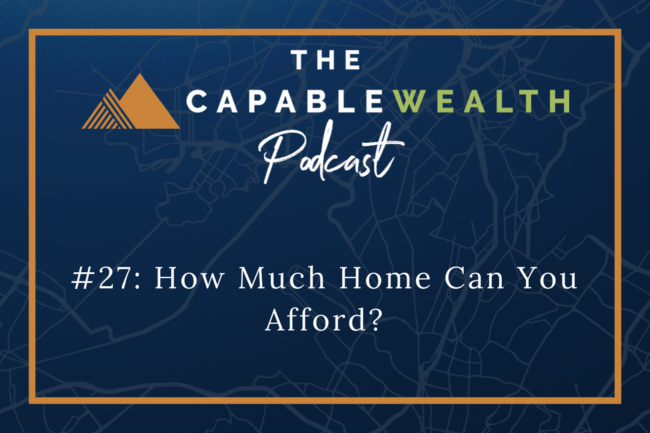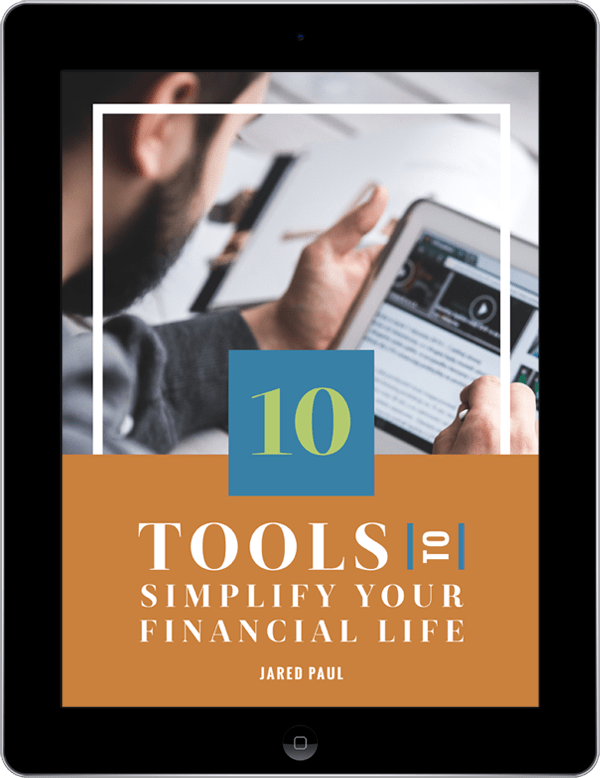This post is part of an ongoing series called “Deconstructing Financial Rules Of Thumb,” where I break down generally accepted financial principles and give you my opinion as to if they are worth following.
If you’re considering buying a home, one of the first thoughts that might pop into your head is “How much can I afford to buy?”
The most traditional way to answer this question is by obtaining a pre-qualification letter. This letter will let you know the amount a bank will approve for a mortgage.
This letter might tell you how much is approved for you to buy a home, but is this a good indication of how much you SHOULD spend on a home?
I’ve written plenty on this blog about my thoughts on homeownership (Read here and here) and the benefit of investing in real estate.
In today’s post, we’re going to discuss what is known as the “Income Rule” for buying a house.
THE INCOME RULE
This is the basic financial principle that states you shouldn’t buy a house that costs more than three years’ worth of your gross annual income. The actual rule varies from 2-3 years depending on who you speak with, but you get the point.
The rule is meant to provide you with a quick (and rough) estimate of the price range in which you should be considering a home.
But this principle falls short, in my opinion.
PRE-QUALIFICATION LETTER
As mentioned earlier, a pre-qualification letter (or “pre-qual”) is a great way to begin to understand the potential price range for your purchase.
“The problem with a pre-qual letter is that it tells you the maximum you can afford to purchase, not what you SHOULD purchase.”

The benefit of the pre-qual is that you’ll know what houses are just flat-out not in your price range.
The negative is the way banks calculate this number.
THE BANKSTER MINDSET
What most people don’t realize is that banks factor in expected default rates into their calculations.
They run massive studies to understand at what debt-to-income levels people will begin missing payments, and then they calculate how many people they can afford to miss payments and still be profitable.
Put in a different way – The banks are banking (get it?) on the fact that some percentage of home buyers are going to fall behind on their payments and potentially default and have to foreclose.
They know that if you are using the maximum amount you were pre-qualified for, there is a higher chance you’ll fall into this category.
Also, there is a spectrum of financial strength that people fall into. Some people might not fall behind on their payments, but their mortgage payment might be so large that they are in a really stressful financial situation.
Is that where you would want to be?
CALCULATE YOUR MONTHLY PAYMENT
The best way for you to decide how much you can afford to spend on a home is by figuring out how much of a monthly payment you can comfortably handle, and then back into what home price that equates to.
A great place to start doing this is by using a mortgage calculator like the one found on realtor.com. You can enter all of the applicable info needed to estimate your monthly payment. Be sure to factor in taxes, insurance, and other costs.
Play around with the figures until you reach a monthly payment that fits into your budget. Then you’ll know in what price range you should be looking for houses.
And don’t forget closing costs. Sure, you might have figured out what monthly payment you can afford, but don’t forget you’ll need a nice little chunk of change in order to close on the property.
YAY OR NAY?
As I stated earlier, I’m not a fan of the Income Rule when it comes to buying a home. I think a principle like this is too vague and doesn’t do nearly enough to provide a true number that will fit into your personal situation.
Buying a home is one of the biggest purchases of your life. It certainly is worth taking the extra time to figure out a number that is more relevant to you.
Capably Yours,
















